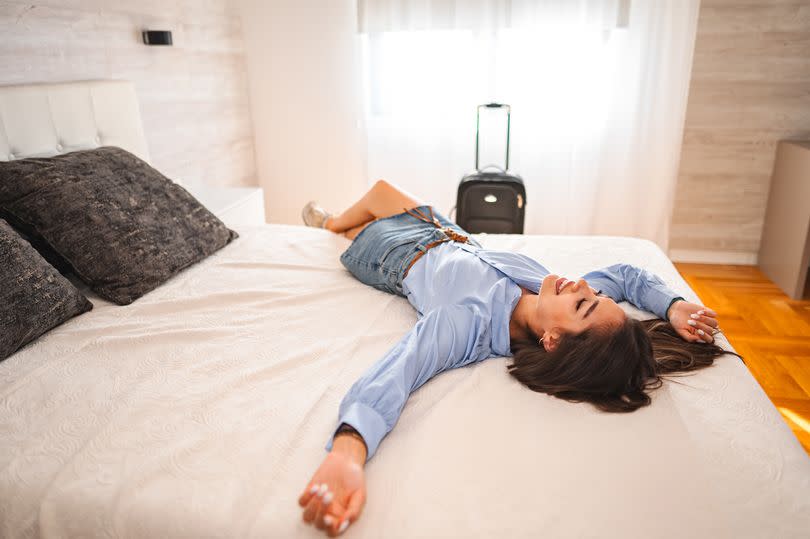First thing we do in a hotel is the wrong thing, says travel expert

The first thing most of us do when we walk into a hotel room after a long day of travel is the wrong thing, a travel expert says. Don’t just head straight for the bed and turn on the TV.
Instead, consider taking a quick moment to check for bed bugs under the mattress. It's a simple step that could save you a lot of inconvenience later on.
But how do they find their way into a hotel room? It’s simple – they are transferred in luggage and on clothing. Bed bugs are attracted to warmth, blood, and carbon dioxide. Unsurprisingly, they thrive on feeding on sleeping humans who provide all three.
Bed bugs have become a global phenomenon, and a recent study by Spotta has revealed a concerning rise in bed bug infestations in UK hotels as well. The research indicates a 278% increase in bed bug cases over the past two years. Furthermore, data from 2.5 million hotel stays suggests a fivefold increase in bed bug reports in the first quarter of 2024 compared to the same period in 2023.
In order to prevent bed bugs from disrupting your trip, Hannah Westphal, a travelling expert at by Hannah Vacations, recommends inspecting the areas where bed bugs are most likely to be found before even unpacking. "Bed bugs are particularly attracted to fabric furniture," Hannah advised.
"A quick inspection is recommended. Lift a corner of the mattress sheet and examine the seams for any signs of activity. It's also wise to check the headboard, chairs, and any other upholstered furniture in the room. If everything appears clear after your inspection, you're probably fine."
For added peace of mind, Hannah suggests: “To avoid transferring any potential bed bugs, it's best to place your luggage on a luggage rack or a chair, rather than on the upholstered furniture or carpet.”
In the unfortunate event that you discover bed bugs in your room, alert hotel reception as soon as possible. Addressing the issue promptly allows the hotel to take immediate action (and may even result in a room upgrade as a gesture of goodwill) compared to reporting bites after your departure.
However, Hannah cautioned, it's important to maintain a safe distance from any potential bed bugs. “If you'd prefer to stay at the hotel but want to switch rooms, it's best to avoid requesting an adjoining room as there's a chance the issue might be present there too.”

 Yahoo News
Yahoo News 
